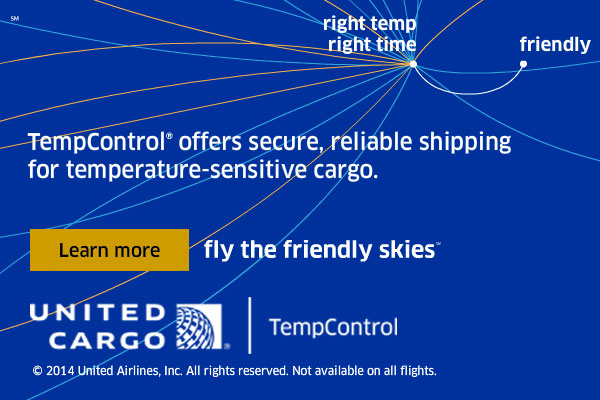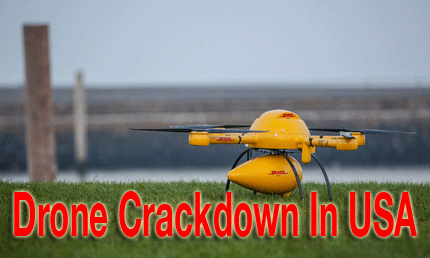
 Head
of Calogi Patrick Murray may be known on the air cargo trade show circuit
for giving away i-Pads to attendees, as well as his crowd-gathering electronic
dart game, which always hits the bulls-eye at these events. Head
of Calogi Patrick Murray may be known on the air cargo trade show circuit
for giving away i-Pads to attendees, as well as his crowd-gathering electronic
dart game, which always hits the bulls-eye at these events.
But the other Patrick turns out to among
the smartest and most well-spoken dreamers and doers in the IT game, especially
when you get him geared up and talking about what enhanced and further
developed systems can mean to the global air cargo business.
Patrick talks about innovation and building
his fast-growing IT company with great enthusiasm and hope.
Murray is no stranger to IT, having been
involved with various systems from British Airways to IATA to Mercator.
But as we learned during a recent conversation,
Calogi is building step-change for the worldwide air cargo community.
Amidst a growing number of IT companies,
fast-rising, Dubai-based Calogi is offering a secure Internet service
portal “that offers a one-stop platform for a range of air cargo
businesses from around the world to negotiate and sell products and services
online.”
We asked Patrick to take a moment and share
his take on 2014 and how air cargo might better itself in 2015.
Up, Up, &
Away
“Once again we have built on our success
and are experiencing our best ever year.
“Growth has been phenomenal, in terms
of both transactions and revenue. In the last six months, we have seen
an increase in transactions of 9 percent and our revenue and profitability
has exceeded all expectations, with income increasing by 26 percent versus
the same time last year, and profitability increasing by a colossal 250
percent.
“This great achievement is credited
to sheer hard work and our team’s commitment to excellence.
“Last year’s customer survey
supports this statement with glowing reviews from our customers.
“In a nutshell:
•
Overall satisfaction with Calogi had been extremely high with 70
percent of freight forwarders and 46 percent of GSAs and airlines giving
an ‘Excellent’ or ‘Very Good’ rating.
•
75 percent of freight forwarder managers view Calogi as better compared
with similar IT solutions, with 57 percent of GSAs and airlines having
the same view.
•
84 percent of freight forwarders and 68 percent of GSAs and airlines
said they would recommend Calogi to other stakeholders looking for IT
solutions.
“We also take the feedback for suggested
improvements very seriously and each year we publish an action plan to
address these on our website.”
What
Is Calogi?
“Calogi is an excellent and unique
product—simplifying the air cargo supply chain, increasing efficiency,
and generating income, while reducing costs. “The model in Dubai
stands as a testament to that claim and I continue to invite industry
leaders, who are serious about reducing their costs or growing their business,
to visit us and speak to some of our customers.
“We continue to pilot the electronic
consignment security declaration and have a solution for both large and
small companies. Key to this development is to remove the need to re-enter
data, and offer a seamless solution allowing large and small forwarders
to participate in the IATA ‘secure freight’ program.
“There are two issues we still need
to overcome:
1.
Producing an electronic consignment security declaration
(e-CSD) where there is no regulated agent program
2.
Send an e-CSD (which is part of the FWB) when a
third party is securing the goods, but not executing the air waybill
“We are working with industry stakeholders
to resolve both issues.
“Furthermore, we are looking to simplify
the business here in Dubai further by introducing a range of self-service
options for customers. We are working on the requirements and planning
to roll out the first phase next year.”
The Calogi
Dock
“With the current capacity constraints
in Dubai, we have seen a huge surge in terminal dock bookings made through
Calogi. The Calogi Dock Booking feature has allowed the cargo terminals
to streamline their acceptance and delivery process and allows an agent
to pre-book an import or export dock and receive priority service. Furthermore,
the cargo terminal has identified off-peak, normal, or peak rates for
each acceptance and delivery dock to allow them to spread the workload.
All Dubai freight forwarders currently subscribing to Calogi automatically
have the opportunity to book docks at the dnata Freight Gate facilities.
Based on historical data and the type of dock, Calogi calculates the loading
and unloading time required for one or more shipments and automatically
determines the time needed to complete the acceptance or delivery process.
We are now in a position to streamline this further and make it easier
for a customer to pick up and deliver shipments.”
The Dubai Miracle
“The Dubai cargo business continues
to grow at a phenomenal rate and to put pressure on local stakeholders
to do things smarter.
“The Calogi Dock Booking feature is
one of our many responses to the growth challenge.
“In the last month, Calogi has processed
over 10,500 export dock bookings for over 18,000 tons of cargo, an incredible
feat.
“While on the subject of terminal
dock booking, dnata has implemented a traffic management system allowing
forwarders who have made a dock booking to enter the facility through
an automated gate. The gate activates via a 2D barcode generated to their
smartphone from Calogi.
“The barcode contains air waybill
details, and commensurate dock bookings.
“For users who do not possess a smartphone,
a paper version can also be printed and scanned to gain access.
“At the last Air Cargo Europe, I committed
to identifying ways to use smartphone technology to do business and this
is the first of many developments.
“A major issue for busy airports is
reducing truck movements and emissions.
“Our dock booking helps resolve many
of these issues.
“We are looking at ways we can exploit
our solution to improve and simplify this area of concern.
“Very exciting times.”
Where Air
Cargo Needs To Be
“IATA challenged the industry to remove
48-hours from the transit time of shipment.
“While this is possible, the question
is the impact airlines have to make this happen—they are responsible
mainly for flying the shipment from origin to destination, a maximum of
24-hours of the actual ‘dwell time.’
“Several factors can be responsible
for the delay, such as customs clearance times, GHA acceptance, forwarder
deliver times, forwarder pick-up times, cool down periods, there are many
points at which delays can occur.
“If we are serious about reducing
the dwell time then we need to identify where the industry stands now
and what the target should be.
“Then we need to ascertain who should
be responsible. ACI makes some interesting points in their Cargo Facilitation
Paper, namely:
‘ACI supports ICAO Annex 9 Recommended
Practice 4.29 establishing a target Customs clearance time of three
hours for arriving general cargo not requiring examination, from the
time proper documentation or a legally acceptable electronic equivalent
is presented. In line with ICAO Standards 4.25 to 4.27, shipments
such as perishable goods, live animals, personal effects and low-value
goods should be cleared promptly on arrival. As provided under RP
4.28, goods imported by authorized importers who have demonstrated
compliance with Customs regulations and who supply advance information,
should be released immediately on arrival.’
‘Airports
should take a leading role in measuring and monitoring the performance
of airport cargo facilities and services. The methodology for assessing
performance and service quality is not well defined or developed,
and no generally accepted standards exist, but fast processing (average
dwell time), high space utilization (e.g. tonnes of cargo handled
per year per square meter of warehouse space) and low manpower requirements
(e.g. tonnes of cargo handled per year per employee) should be among
the criteria used for assessing economic and efficient cargo handling.
The applicable standards for each criterion will vary, depending on
the type of operation and cargo. Research is also needed to establish
cargo status monitoring systems, using information technology.’ |
“The recommended customs clearance
time will certainly have a positive impact on the dwell time. I would
go a step further and introduce pre-clearance for ‘trusted traders.’
The latter is a interesting point of view and if implemented would mean
the airport would step out of their role as landlords and take a more
proactive role in measuring and monitoring the cargo operation. In the
maritime industry, certain port operators publish current performance
figures on their web site; it would be good to see this level of transparency
in the air cargo industry.
“Regardless, the challenge is there
and we need to step up to it. As I said, we need to better understand
where the bottlenecks are and why the dwell time is still at an unacceptable
level. More importantly we need to develop an industry action plan to
address the same. Once we are aligned on the direction, we at Calogi will
work with industry stakeholders to develop the measures and system processes
to expedite the movement of cargo.”
e-cargo,
e-freight and e-AWB
“[There is] still a long way to go
for all stakeholders. There has been a huge amount of effort expended
by the industry in implementing e-AWB, penetration has increased to 19.4
percent, and it appears that we are on target to achieve 22 percent by
the end of the year, which will be a great achievement for our industry.
“I admire the approach and investment
made by the integrators and our industry is right to use them as the benchmark
by which we measure ourselves. They are leaders in terms of e-commerce
and I’ve found it easy to do business with them. I use integrators
often; I create the air waybill from my desktop (which takes a minute),
get a price for pick-up and delivery, put the shipment into a pack, and
off it goes. However, investment in IT solutions and simplifying the business
model is high on their agenda. Some of the very large airlines and forwarders
are also making strides to embrace e-commerce and are doing some great
things. At the other end of the spectrum we have the SME forwarder, airlines,
terminal operators, and GSAs, many of which do not have systems e-enabled
or may not have systems at all. It’s economics—paying for
an e-commerce system, in many cases, may be the difference between profit
and loss.
“Solution providers need to recognize
the importance of cost effectiveness.
“It is worth noting that IATA, based
on the industry’s call on cargo electronic data interchange (EDI),
is planning on freezing further development of Cargo-IMP messages by the
end of 2014, and encouraging use of Cargo-XML messages. Cargo-IMP messages
can still be used in the industry but IATA will stop enhancing this standard.
“According to the web site, this implies
that:
•
The last edition of Cargo-IMP Manual (34th edition) will have been
published at the end of 2014
•
New upgrades will only be conducted in the equivalent Cargo-XML
messages
•
IATA will only maintain the Cargo-XML Manual and Toolkit
“It will be great to see one standard
across multiple modes of transport and multiple stakeholders, but the
cost of upgrading and parallel running of XML and CargoIMP will be with
us for some time, I fear. Solutions providers, like Calogi, have a large
part to play in this. Cost-effective standards would certainly encourage
the industry to move to new ways of exchanging data.
“In Dubai, we have set aggressive
targets for e-AWB implementation, and we will do everything in our power
to push the industry into a paperless environment. We have had the technology
for some time, now it’s time to further exploit this.”
Calogi @
Sharjah
“Together with Sharjah Airport Services
(SAS), we have re-affirmed our commitment to simplifying the way the Sharjah
Forwarding community carries out its business. In response to calls from
the air cargo supply chain community, Calogi has built an interface that
allows forwarder customers to do e-commerce transactions with both the
airline and SAS, demonstrating the continued support for one of the pillars
of e-freight; data is entered once and re-used across the supply chain.
The popularity has been such that on the day of the launch 11 large Sharjah
freight forwarders joined Calogi, with many more to come.
“The initiative also paves the way
for us to roll out our air waybill stock release feature to Sharjah airlines
and forwarders. The concept is brilliant but simple—an airline makes
a pool of air waybill stock available to the community and each forwarder
has the option to assign an air waybill from that pool to a particular
job. Upon execution of the air waybill, the monies are deducted from the
forwarder’s Calogi credit account, and credited to the airline.
The airline retains part of the air waybill fee, a source of income that
did not exist prior to the Calogi implementation.
“Shashi Panicker, head of Cargo, has
been supportive of the move and says SAS has always pursued innovation
in services and in the technology they use to support their customer base
in Sharjah. SAS also intends to actively pursue e-AWB implementation through
Sharjah, and we agree a product like Calogi will help the small and medium
size enterprises meet those requirements quite easily. We are extremely
pleased to work together with SAS to offer an industry leading e-commerce
solution in Sharjah to improve SAS’s overall service proposition
to our customers.
“Technology can be intimidating to
many organizations, especially those in the cargo industry, but Calogi
takes the fear out of the process, turning complex issues into easy-to-understand
solutions. Other stakeholders have appreciated
the dedication shown by the Calogi team and have found true value in the
Calogi product enabling them to reach out to their customers easily and
faster now.
“The freight handling volume at the
Sharjah International Airport crossed over 290 thousand tonnes last year,
and the capacity is gauged at roughly over 700 thousand tonnes. Presently,
Sharjah Airport serves more than 250 companies.
“For Calogi this is a fantastic result
and we are pleased to collaborate with forward thinking companies like
Sharjah Airport Services. We remain immensely proud of our achievements
in Sharjah and look forward to continuing to support the community goal
of removing outdated paper-based processes.”
Geoffrey Arend
|






 Even
before the first package drones from FedEx, Amazon, or anyone else become
airborne and ready to deliver a bolt out of the blue to your doorstep, politicians
sensing a public safety issue are ramping up legislation to stop them.
Even
before the first package drones from FedEx, Amazon, or anyone else become
airborne and ready to deliver a bolt out of the blue to your doorstep, politicians
sensing a public safety issue are ramping up legislation to stop them.

